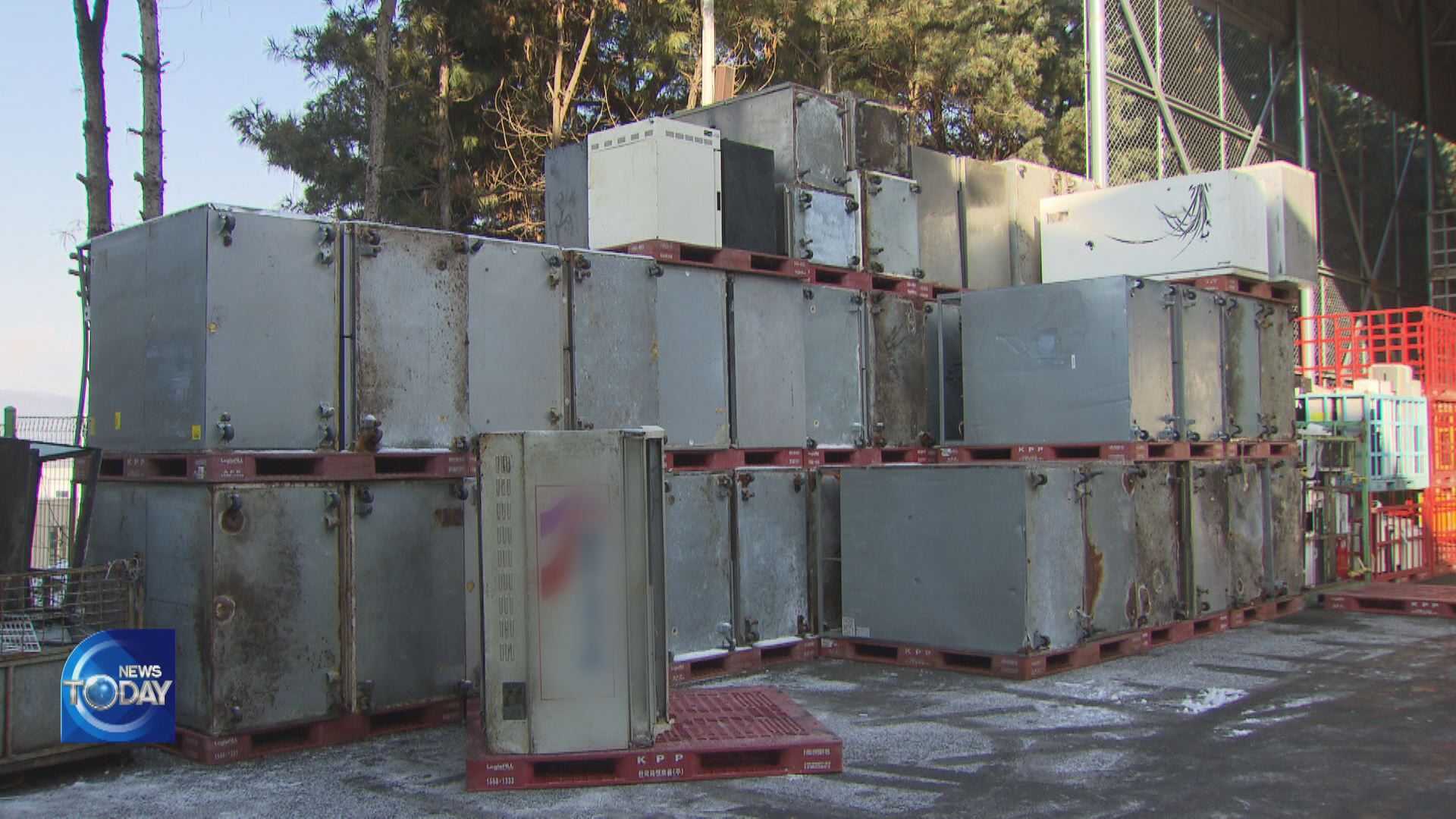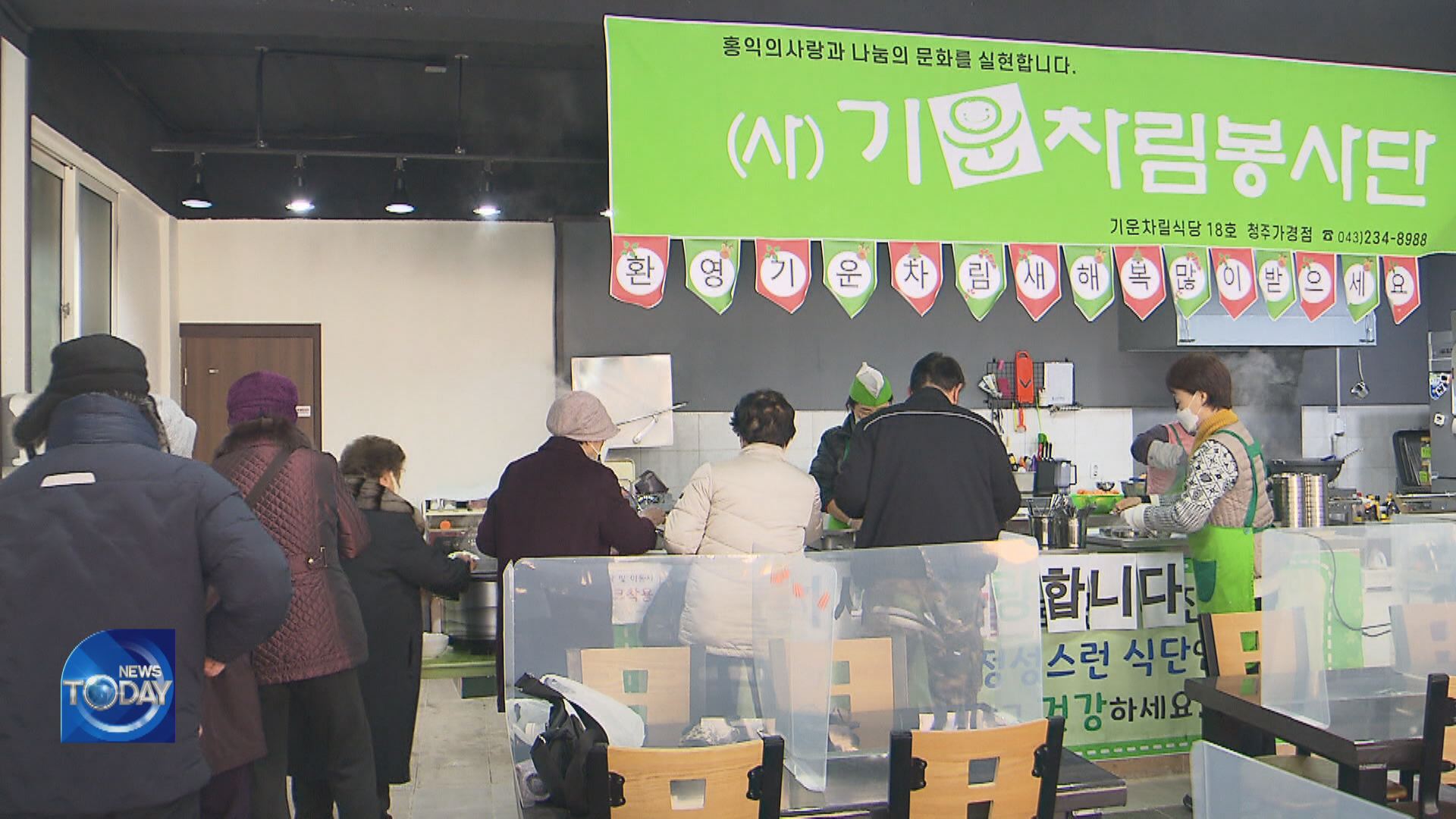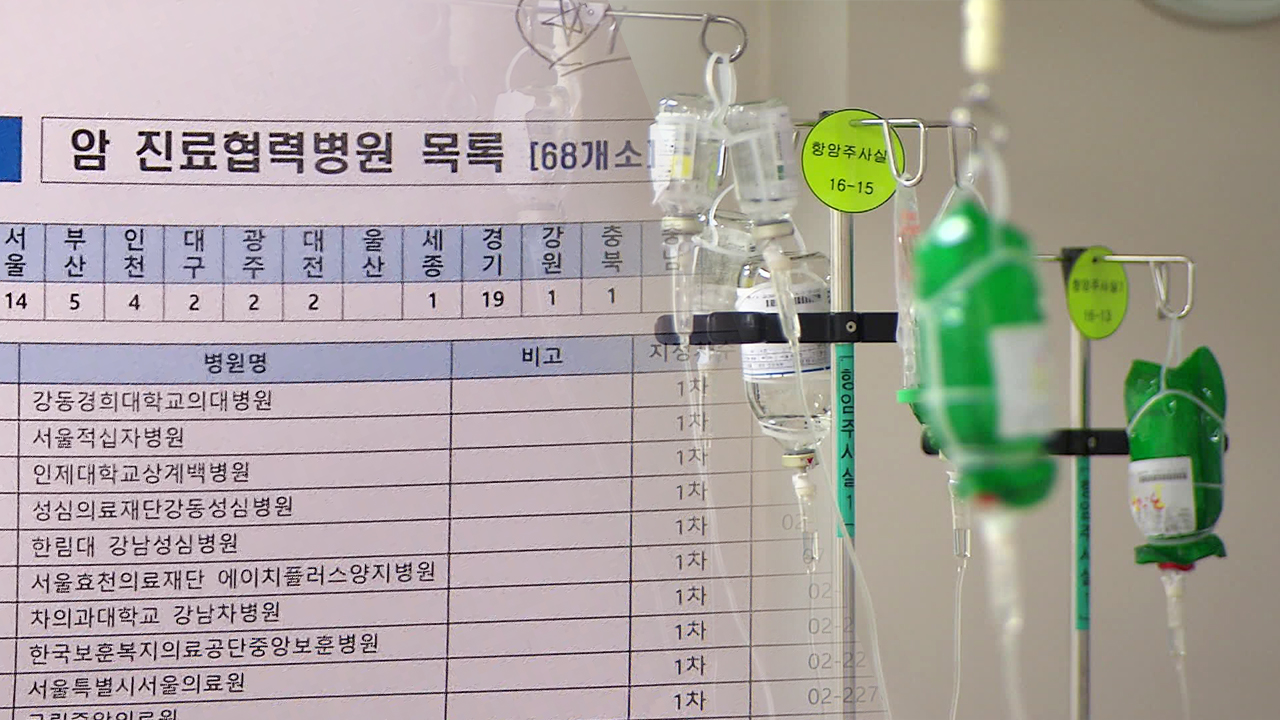E-WASTE RISES AMID LOW RECYCLING RATES
입력 2023.01.30 (15:03)
수정 2023.01.30 (16:45)
읽어주기 기능은 크롬기반의
브라우저에서만 사용하실 수 있습니다.
[Anchor Lead]
The number of electronic products have increased over the years, and new types of home appliances such as driers, garburators, and air purifiers are being released day by day. This also means more electronic products are being discarded. So are they actually being recycled and utilized after being thrown out? We take a look.
[Pkg]
Large home appliances, such as refrigerators and washing machines, are piled up at this recycling firm in Gyeonggi-do Province. Most of them are subject to mandatory recycling. Under the Eco Assurance System, manufacturers of electronic products of a certain size must recycle 30 to 40 percent of their shipped products. However, items subject to the system do not correspond with reality. The list of items subject to the list has been recently expanded to 50 after staying at 27 since 2008. But many small and high-tech devices are still being excluded.
[Soundbite] Yang Jung-mo(e-Cycle Governance) : "Discarded items include many drones, e-cigarettes and electric scooters. They are thrown away in garbage bags for incineration."
If electronic devices are discarded without recycling, it may result in a waste of resources and environmental pollution. Printed circuit boards contained in them are made of heavy metals, which need to be processed and recycled properly to prevent environmental damage. Some companies voluntarily collect discarded electronic items that are not subject to mandatory recycling.
[Soundbite] Chae Myung-hee(KT) : "If discarded plastics are recycled instead of being thrown away entirely, five million eco-friendly devices can be produced every year."
For the Eco Assurance System to produce better results, some are calling for more flexibility in selecting businesses and items subject to recycling as well as the recycling rate itself.
[Soundbite] Kim Mi-hwa(Korea Zero Waste Movement Network) : "The Eco Assurance System should be expanded by assessing items in advance. But currently that’s not the case. The amount of garbage keeps growing and it’s too late to do something."
The amount of per-capita electronic waste in Korea reaches 16 kilograms annually, almost twice as much as the global average of 7.3 kilograms.
The number of electronic products have increased over the years, and new types of home appliances such as driers, garburators, and air purifiers are being released day by day. This also means more electronic products are being discarded. So are they actually being recycled and utilized after being thrown out? We take a look.
[Pkg]
Large home appliances, such as refrigerators and washing machines, are piled up at this recycling firm in Gyeonggi-do Province. Most of them are subject to mandatory recycling. Under the Eco Assurance System, manufacturers of electronic products of a certain size must recycle 30 to 40 percent of their shipped products. However, items subject to the system do not correspond with reality. The list of items subject to the list has been recently expanded to 50 after staying at 27 since 2008. But many small and high-tech devices are still being excluded.
[Soundbite] Yang Jung-mo(e-Cycle Governance) : "Discarded items include many drones, e-cigarettes and electric scooters. They are thrown away in garbage bags for incineration."
If electronic devices are discarded without recycling, it may result in a waste of resources and environmental pollution. Printed circuit boards contained in them are made of heavy metals, which need to be processed and recycled properly to prevent environmental damage. Some companies voluntarily collect discarded electronic items that are not subject to mandatory recycling.
[Soundbite] Chae Myung-hee(KT) : "If discarded plastics are recycled instead of being thrown away entirely, five million eco-friendly devices can be produced every year."
For the Eco Assurance System to produce better results, some are calling for more flexibility in selecting businesses and items subject to recycling as well as the recycling rate itself.
[Soundbite] Kim Mi-hwa(Korea Zero Waste Movement Network) : "The Eco Assurance System should be expanded by assessing items in advance. But currently that’s not the case. The amount of garbage keeps growing and it’s too late to do something."
The amount of per-capita electronic waste in Korea reaches 16 kilograms annually, almost twice as much as the global average of 7.3 kilograms.
■ 제보하기
▷ 카카오톡 : 'KBS제보' 검색, 채널 추가
▷ 전화 : 02-781-1234, 4444
▷ 이메일 : kbs1234@kbs.co.kr
▷ 유튜브, 네이버, 카카오에서도 KBS뉴스를 구독해주세요!
- E-WASTE RISES AMID LOW RECYCLING RATES
-
- 입력 2023-01-30 15:03:45
- 수정2023-01-30 16:45:02

[Anchor Lead]
The number of electronic products have increased over the years, and new types of home appliances such as driers, garburators, and air purifiers are being released day by day. This also means more electronic products are being discarded. So are they actually being recycled and utilized after being thrown out? We take a look.
[Pkg]
Large home appliances, such as refrigerators and washing machines, are piled up at this recycling firm in Gyeonggi-do Province. Most of them are subject to mandatory recycling. Under the Eco Assurance System, manufacturers of electronic products of a certain size must recycle 30 to 40 percent of their shipped products. However, items subject to the system do not correspond with reality. The list of items subject to the list has been recently expanded to 50 after staying at 27 since 2008. But many small and high-tech devices are still being excluded.
[Soundbite] Yang Jung-mo(e-Cycle Governance) : "Discarded items include many drones, e-cigarettes and electric scooters. They are thrown away in garbage bags for incineration."
If electronic devices are discarded without recycling, it may result in a waste of resources and environmental pollution. Printed circuit boards contained in them are made of heavy metals, which need to be processed and recycled properly to prevent environmental damage. Some companies voluntarily collect discarded electronic items that are not subject to mandatory recycling.
[Soundbite] Chae Myung-hee(KT) : "If discarded plastics are recycled instead of being thrown away entirely, five million eco-friendly devices can be produced every year."
For the Eco Assurance System to produce better results, some are calling for more flexibility in selecting businesses and items subject to recycling as well as the recycling rate itself.
[Soundbite] Kim Mi-hwa(Korea Zero Waste Movement Network) : "The Eco Assurance System should be expanded by assessing items in advance. But currently that’s not the case. The amount of garbage keeps growing and it’s too late to do something."
The amount of per-capita electronic waste in Korea reaches 16 kilograms annually, almost twice as much as the global average of 7.3 kilograms.
The number of electronic products have increased over the years, and new types of home appliances such as driers, garburators, and air purifiers are being released day by day. This also means more electronic products are being discarded. So are they actually being recycled and utilized after being thrown out? We take a look.
[Pkg]
Large home appliances, such as refrigerators and washing machines, are piled up at this recycling firm in Gyeonggi-do Province. Most of them are subject to mandatory recycling. Under the Eco Assurance System, manufacturers of electronic products of a certain size must recycle 30 to 40 percent of their shipped products. However, items subject to the system do not correspond with reality. The list of items subject to the list has been recently expanded to 50 after staying at 27 since 2008. But many small and high-tech devices are still being excluded.
[Soundbite] Yang Jung-mo(e-Cycle Governance) : "Discarded items include many drones, e-cigarettes and electric scooters. They are thrown away in garbage bags for incineration."
If electronic devices are discarded without recycling, it may result in a waste of resources and environmental pollution. Printed circuit boards contained in them are made of heavy metals, which need to be processed and recycled properly to prevent environmental damage. Some companies voluntarily collect discarded electronic items that are not subject to mandatory recycling.
[Soundbite] Chae Myung-hee(KT) : "If discarded plastics are recycled instead of being thrown away entirely, five million eco-friendly devices can be produced every year."
For the Eco Assurance System to produce better results, some are calling for more flexibility in selecting businesses and items subject to recycling as well as the recycling rate itself.
[Soundbite] Kim Mi-hwa(Korea Zero Waste Movement Network) : "The Eco Assurance System should be expanded by assessing items in advance. But currently that’s not the case. The amount of garbage keeps growing and it’s too late to do something."
The amount of per-capita electronic waste in Korea reaches 16 kilograms annually, almost twice as much as the global average of 7.3 kilograms.
이 기사가 좋으셨다면
-
좋아요
0
-
응원해요
0
-
후속 원해요
0

















이 기사에 대한 의견을 남겨주세요.